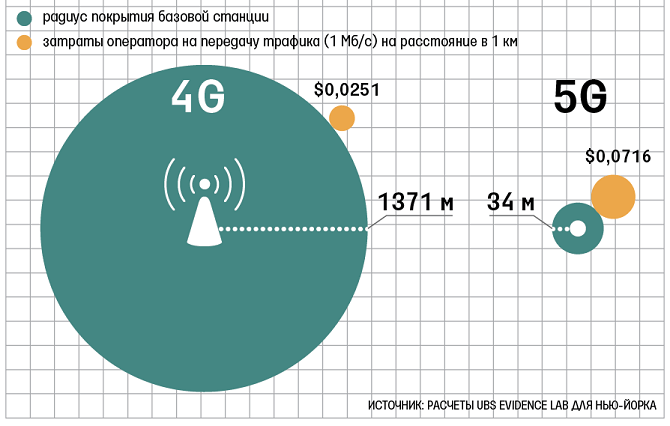Ministry of Communications insists on a single operator 5G

Despite the criticism of experts and mobile operators, the Ministry of Communications insists on a single infrastructure operator, citing a shortage of frequencies, RBC writes .
For the creation of a single infrastructure operator, Rostelecom has been acting for several years, who would like to perform the role of such an operator. The joint venture of Rostelecom and MegaFon - Digital for Business, which began operating in February 2019, also claims this role.
At the end of December, the Deputy Head of the Ministry of Communications and Mass Media, Oleg Ivanov, said that two frequency bands would be allocated for testing 5G: 4.8–4.99 GHz and 27.1–27.5 GHz.
The initial project provided for the allocation of frequencies for 5G in three bands:
')
- 3400-4200 MHz;
- 4400-4900 MHz;
- 25.25-29.5 GHz.
But the SCRF significantly reduced the list: “There were many frequency bands in the draft decision. Unfortunately, there are only two left, because for the rest it is still necessary to carry out the conversion, because they are all busy, ”Ivanov explained.
Not everyone will be able to work in the two selected frequency ranges. The 4.8–4.99 GHz band, as well as the lion’s part of the new band, are allocated to the infrastructure operator, if telecom operators create it, the official specified. Only a narrow band of 27.1–27.5 GHz will be traded.
In recent months, the proposal of the Ministry of Communications has been criticized by large telecom operators and even by the Federal Antimonopoly Service, but the agency insists on its own. Such a conclusion can be drawn from the concept that the ministry recently sent to the Ministry of Finance, the Ministry of Defense, the Ministry of Industry and Trade, the Federal Security Service and the Federal Security Service for approval (RBC has a copy). The listed agencies must submit their feedback on the concept by March 15.
If the Ministry of Communications is able to carry out such a version of the concept, then Rostelecom can qualify for a large order. In the ministry’s document, the cost of Moscow’s coverage by 5G networks as a single operator was estimated at 16 billion rubles, and of million-plus cities, at 56 billion rubles.
The representative of the Ministry of Communications and Mass Media Yevgeny Novikov believes that a single infrastructure operator is the only possible solution for the development of the network in conditions of a shortage of frequencies: “This will be a separate legal entity. But we offer the operators themselves to agree on what it will be, ”he said.
The representative of MTS, Alexei Merkutov, disputes the thesis of the Ministry of Communications and Mass Media: he says that the creation of a single operator does not solve the issue of a shortage of frequencies, but "may lead to monopolization and stagnation of the market." A representative of VimpelCom, Anna Aybasheva, noted that if the 600 MHz spectrum is not released in the bands below 5 GHz, the networks will not be able to pass the increasing subscriber traffic.
Source: https://habr.com/ru/post/443816/
All Articles